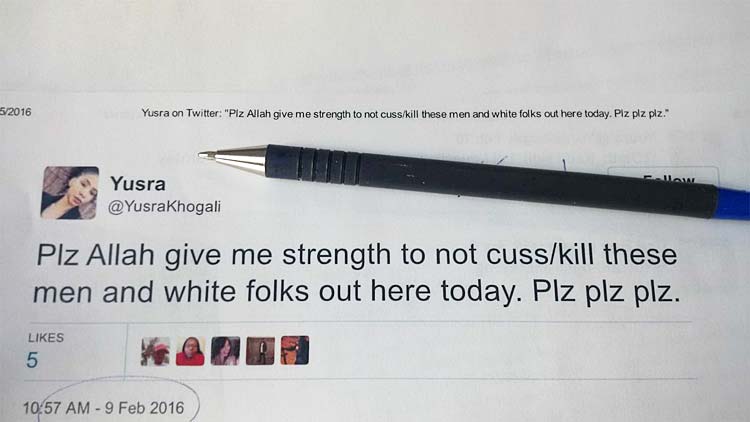
The New Zealand counterculture has been surprised recently by the sudden rise of Billy Te Kahika and his New Zealand Public Party. His appearances on the Vinny Eastwood Show have brought his name to everyone’s awareness, but who is Billy TK and what is his party about? This article explains.
Most of the details about the party can be found at their website. This offers a fairly comprehensive overview of NZPP policy.
The NZPP is transparently a protest movement. The ‘About Us’ section of their website states “The New Zealand Public Party was formed by Billy Te Kahika in response to the blatant injustice and tyranny being hurled upon the New Zealand people by the Labour/NZ First/Green government.” Their main intention appears to be to change the system.
Billy TK himself is a mysterious man. Rumours swirl that he was an SAS soldier, a 33rd-degree Freemason, a former United Nations lackey and even an NZSIS operative who is acting to mislead anti-Establishment voters. His rise has been swift, and out of the blue – there is no indication that he has previously been a member of any other party.
Te Kahika has recognised the difficulty of surmounting the 5% threshold, and to that end has made an effort to unite the smaller parties. The NZPP has already absorbed the Reset New Zealand Party, who had many of the same aspirations regarding a national Bill of Rights. He has also approached the New Zealand Outdoors Party, the Aotearoa Legalise Cannabis Party and the Social Credit Party with offers to unite.
The bulk of NZPP philosophy can be found on the ‘What We Stand For‘ page of their website.
Their commitment to “Rebuild New Zealand Back Into A Democracy” promises to write a new New Zealand constitution, one for the people. This process will involve writing a “real Bill of Rights”. This Bill of Rights would underpin all other laws, so that other laws would have to accord with it. This would be very different to today’s system, where any supposedly guaranteed human rights can be abrogated whenever the government feels like it.
It seems from this, and from the disinclination to appear in the mainstream media, that the NZPP is a people’s movement and not another Establishment vehicle. Other minor parties have blatant agendas: the Maori Party wants to stir up racial tensions; the New Conservatives want a theocracy where everyone is forced to worship Jesus. The NZPP has no obvious agenda.
The NZPP would enshrine in law the superior importance of human rights over corporate profits. This would mark a radical departure from today’s model, where the people are effectively serfs who exist solely to meet the labour needs of the projects dreamed up by the ruling classes. No doubt such a proposal will be met with horror by New Zealand’s wealthy, for who human rights are impediments to profitability.
Housing is another major priority for the NZPP. They have identified the poor standard of New Zealand housing as one of the primary contributors to the suffering of the New Zealand people, stating that “healthcare begins at home”. This, when coupled with the human rights drive, would seem to pigeonhole the NZPP as an alt-left party.
This would be inaccurate, though, as they also have conservative policies, such as their stance on abortion. They think that the law recently passed by the Sixth Labour Government (which allows abortion up to birth) is extreme. Here they emphasise that people have the right to prevent unwanted conception, but also that they “cannot grant the killing of a person as a method of birth control”.
Christianity perhaps also influences Billy TK’s stance on legal cannabis, which he thinks New Zealand is “not quite ready for.” Despite this reluctance, he was more than happy to relate an anecdote to Vinny Eastwood about a family member benefitting from the use of it, and was more than happy to admit smoking it himself when younger. He may be lukewarm on legal cannabis, but is no Bible-thumping New Conservative.
It might also influence their most obviously alt-centrist policy, which is opposition to usury. Billy Te Kahika is strongly against usury, which means that he will be despised by the Establishment. However, in opposing usury he has the potential to win the support of large number of Kiwis, in particular the more conspiracy minded.
The NZPP approach seems like it is to cast a wide net, with the intention of bringing a large number of people together for the sake of forcing change on the Establishment.
What the NZPP offers is a centrist and anti-Establishment platform. This means that they avoid the major weaknesses of the previous anti-Establishment movements, who have shown themselves to be either too left-wing for the public (The Opportunities Party, the Aotearoa Legalise Cannabis Party, Social Credit) or too right-wing for the public (New Conservatives, ACT to a lesser extent).
Predictably perhaps, Billy TK has already generated a few enemies. These are mostly members or supporters of other parties who feel that the NZPP is acting to split the anti-Sixth Labour Government vote.
The NZPP’s most aggressive enemies are the New Conservatives, who, until now, had a lock on the anti-United Nations and anti-abortion voters. It’s likely that the NZPP steals many of these voters from the New Conservatives, on account of that Te Kahika is clearly more intelligent than either Leighton Baker or Elliot Ikilei. The NZPP also doesn’t have any awful policies, like New Conservatives’ proposal to increase penalties for cannabis use.
As of right now, it’s hard to say how well the NZPP would do in the election. They are striking all the right chords among New Zealand’s alternative thinkers, but it’s not certain that they will be able to register in time to contest the vote. Nominations for the election close on 21 August, about six weeks away. If Billy TK and the NZPP are to contest it, they will need to build momentum fast.
*
If you enjoyed reading this essay, you can get a compilation of the Best VJMP Essays and Articles of 2019 from Amazon for Kindle or Amazon for CreateSpace (for international readers), or TradeMe (for Kiwis). A compilation of the Best VJMP Essays and Articles of 2018 and the Best VJMP Essays and Articles of 2017 are also available.
*
If you would like to support our work in other ways, please consider subscribing to our SubscribeStar fund. Even better, buy any one of our books!



